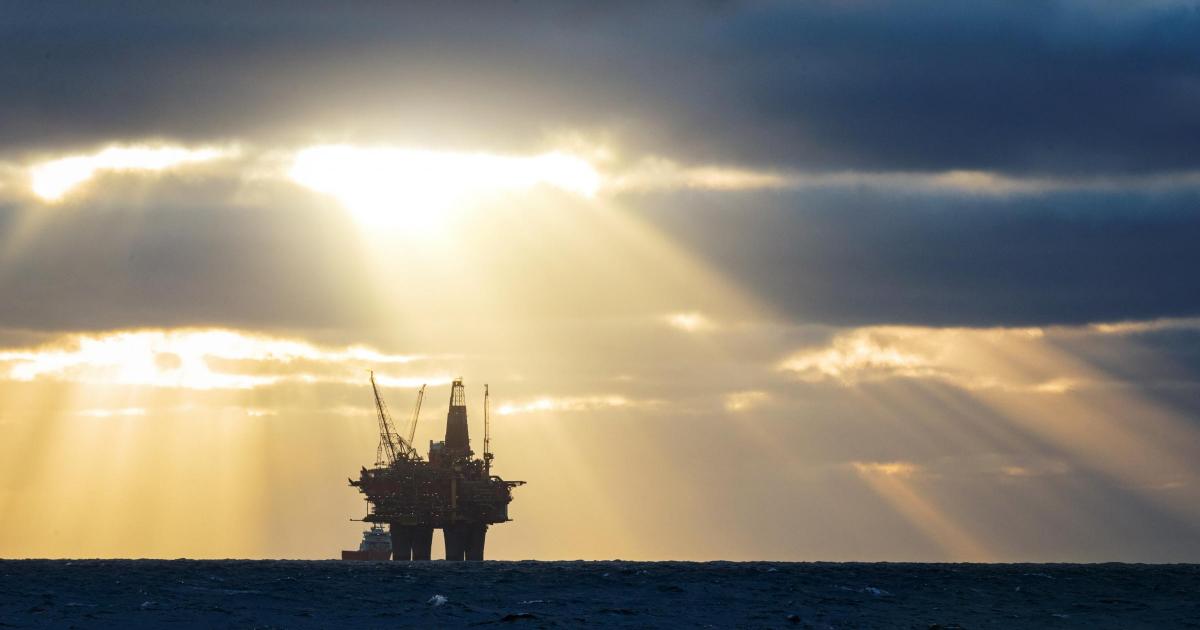Since then, the world hasn’t stood still, and neither have I. I’ve spoken to industry leaders, attended Offshore Europe at P&J Live, and met with Professor Paul de Leeuw from the Robert Gordon University Energy Transition Institute to hear about his latest report on the reality of Scotland’s energy economy.
And I came away more convinced than ever that we need to talk honestly about what’s at stake for the north-east and for Scotland’s future, including our independent future.
This issue isn’t abstract, it’s already happening. Jobs are being lost in Aberdeen and across the region. We’re seeing supply chains hollowed out and workers left in limbo. And yet we are still in the absurd position where the power to manage and plan our own energy future lies not with Scotland, but with Westminster.
READ MORE: Kate Forbes backs Labour’s military industrial strategy
Before the war in Ukraine, before the energy crisis, before the cost of living exploded, and before we began to see the real and dangerous consequences of instability in global energy markets, we may have held a view to presume that we should stray away from oil and gas. But whether we like it or not, oil and gas are still part of our energy mix.
The real question we face now isn’t whether we should use oil and gas, it’s where we get it from, who benefits, and how we manage the decline in a way that supports workers. Right now, the UK imports 40% of its energy, much of it from countries that don’t share our values.
As Offshore Energies UK pointed out this week, producing oil and gas domestically can have a significantly lower carbon footprint than importing it as liquefied natural gas.
That matters not just environmentally, but geopolitically too. Because as long as we remain dependent on volatile global markets, we leave ourselves vulnerable to the whims of people like Vladimir Putin or even a second Trump presidency.
In Scotland, we have the skills, the infrastructure and the energy resources to manage this better, but, as someone said recently, “we have all the energy and none of the power”. If that doesn’t underline the case for independence, what does?
Take my own constituency of Banffshire and Buchan Coast.
I visited the St Fergus Gas Terminal, which continues to supply more than a third of the UK’s gas. It’s a critical piece of infrastructure, and it sits just outside Peterhead.
One of the most striking facts I’ve learned over these last few weeks is that one in six jobs in the north-east is in offshore energy. One in six. That’s people trying to support families, pay rent and mortgages. At the moment they’re anxious and rightly so.
We have to stop presenting this as a false choice between oil and gas or renewables. It’s not either/or. It’s not clean versus dirty, jobs versus the planet. Offshore energy is a whole ecosystem. Yes, we need to reduce emissions, but we need to do it with our workforce.
The industry knows this. The unions know this. The academics know this. And from what I’ve seen on the ground, most people in the north-east know it too.
We will still need oil and gas in the years ahead; we need a managed decline, not an ideological cliff edge. But some of what we’ve heard from Westminster politicians recently is dangerous ideology.
Tory leader Kemi Badenoch said she wants to “drill the North Sea dry”. That’s not a strategy, that’s recklessness. Without parallel investment in renewables, supply chains, skills and infrastructure, all you’re doing is setting fire to the bridge before you cross it.
GB Energy chair Juergen Maier and David Whitehouse, CEO of Offshore Energies UK, are calling for a more integrated and responsible approach. They’ve rightly pointed out that language matters; that the energy sector is not just oil and gas or renewables but both, and that we must build bridges between them.
I also appreciated Whitehouse’s comments on the carbon intensity of imported liquefied natural gas compared to domestic production. It’s easy to think you’re helping the planet by saying no to Scottish oil, but if all you’re doing is offshoring that carbon times four, what exactly have you achieved?
READ MORE: John Swinney flies to US for Scotch whisky tariff talks
Now, I’m not in the government, I’m a backbench MSP. But I will continue to use my voice to champion a pragmatic, evidence-based approach, and one that reflects the reality of what’s happening in our communities. This sits firmly at the feet of the UK Government, because they do hold the powers, and they need to provide the consistency, confidence and investment that our energy sector needs. Their manifesto was swinging wildly between performative climate pledges and populist resource grabs. That’s no way to run a national energy strategy.
Meanwhile, Scotland is left without the ability to make its own long-term energy decisions. That has to change. And that means independence. Only with full powers can we design an energy policy that works for our economy, our environment, and our people.
Interestingly, even former first minister Nicola Sturgeon has recently reflected on this. In her new book, she acknowledges she may have been too quick to take a hard line against oil and gas. That kind of honest self-reflection is welcome, and it shows how much the conversation is evolving. It’s crucial to adjust your thinking as the facts change.
We need a government that doesn’t see oil and gas as a political football or an ideological battle, but as part of a broader, managed energy transition. And we need that government to be in Scotland, elected by and accountable to the people of Scotland, and focused on the future of Scotland. We’ve got the energy. Now let’s get the power.
